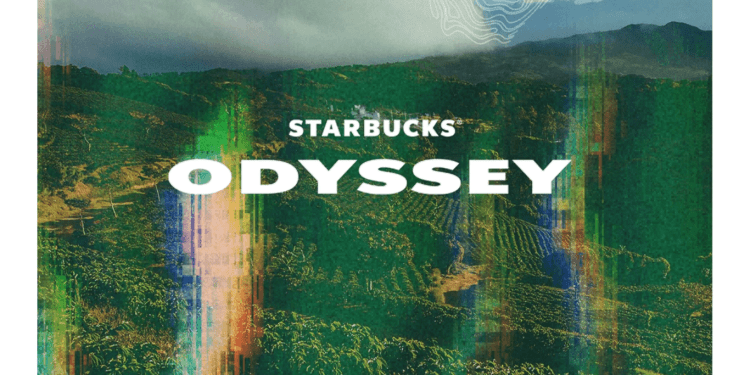- Starbucks Odyssey program has been successful in providing customers with digital assets that unlock exclusive experiences and has received praise from Bank of America.
- Traditional points-based loyalty programs suffer from low customer engagement levels due to limited rewards, confusing conditions, and frustrating user experiences.
- Tokenized loyalty programs provide customers with more options, more value, and eliminate friction by providing a seamless digital wallet experience.
Starbucks’ Odyssey program, a blockchain-based loyalty system, has been making waves in customer rewards programs. The program, which allows customers to earn new rewards, including digital assets that unlock exclusive experiences, has been praised by Bank of America for its innovative approach to customer engagement.
The Odyssey program is just one example of a growing trend toward blockchain-based rewards systems in the loyalty program market. BMW has also recently announced a similar program that rewards customers with tokens that can be used to purchase the manufacturer’s products and services.
According to a 2022 study, customers are enrolled in an average of 16 loyalty programs but actively use only half. The traditional points-based model of loyalty programs simply isn’t working to engage customers. Common issues with traditional loyalty programs are more rewards, clearer conditions, and a frustrating user experience.
On the other hand, tokenized loyalty programs offer a range of benefits that keep customers engaged and spending more over the long term. Bank of America views the success of Starbucks’s program as an opportunity for other brands to adopt this innovative approach. They explain three reasons a tokenized loyalty program provides more value and engagement than a traditional points-based model.
Why Tokenized Loyalty Programs are Increasing in Popularity
Firstly, tokens provide more options. With traditional loyalty programs, customers typically can redeem their points with the brand they’re buying from or a limited number of secondary partners. In contrast, loyalty tokens can be redeemed across a broader ecosystem of multiple programs. This means that customers have more choice and control over how they get rewarded.
Secondly, tokens provide more value. Traditional loyalty programs often leave customers feeling short-changed, with the points they spend with a secondary partner worth less than the primary partner. This can force customers to make a value call and choose between what they would like most and what is more economically prudent. Tokens keep their value, giving customers a like-for-like reward when they redeem their tokens with other brands in the same loyalty ecosystem.
And unlike some loyalty point schemes, tokens never expire, incentivizing customers to save for longer for more significant, desirable purchases.
Finally, tokens eliminate friction. Managing multiple loyalty accounts can be a hassle for customers, with different reward points from other companies with varying redemption policies – all needing to be accessed in different places. But a tokenized loyalty program built on blockchain eliminates that problem, providing customers with a frictionless experience and increasing the odds that a customer remains active and keeps spending with a brand.
The Future of Tokenized Loyalty Programs
The potential of tokenized loyalty programs is vast, and early adopters are already starting to see the benefits. Libra Incentix is one company that is ahead of the game. Its LIX platform can be integrated with any existing loyalty software and customized to how and when a brand wants to reward its customers.
Andrew Doxsey, the co-founder of Libra Incentix, sees considerable opportunities for investors looking to break into this industry. “Traditional loyalty programs have reached saturation point, and customers are tuning out,” he says. “With the likes of BMW and Starbucks adopting blockchain-based loyalty programs, I think we’ll see more brands experimenting with this technology to try and differentiate from competitors.”
The future of brand loyalty lies in blockchain-based reward systems. As more and more brands adopt tokenized loyalty programs, customers will be given more choice, value, and a frictionless experience that will keep them engaged and spending more. And for investors looking to get in on the ground floor, now is the time to start exploring the opportunities this exciting new industry offers.














